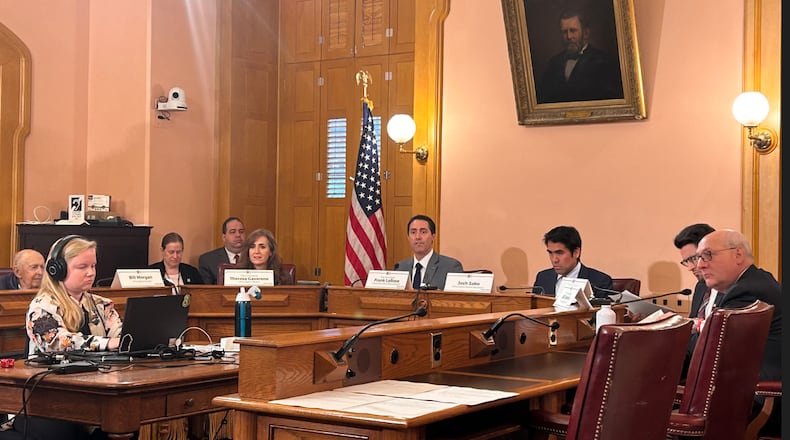The court mandated those changes after finding that Issue 1′s prior language could lead voters to assume that the amendment would affect all constitutional amendments evenly and erroneously informed voters that petitioners would need to collect signatures from at least 5% of all eligible voters in every Ohio county instead of the actual 5% based on the number of voters who participated in the last gubernatorial election.
The new and old titles are below:
- New: Elevating the standards to qualify for an initiated constitutional amendment and to pass a constitutional amendment.
- Old: Elevating the standards to qualify for and to pass any constitutional amendment.
While the new title does satisfy the court’s order to remove the word “any,” Democrats on the board and legal representatives for the Issue 1 “No” campaign hoped Ohio Secretary of State Frank LaRose would use the title to provide more clarification to accurately describe the issue’s scope.
“The court’s order wasn’t simply about removing the word ‘any’,” testified Don McTigue, the Columbus-area attorney who lodged the complaint against the board’s previous language. “The court said that the ballot title shall accurately describe the scope of the proposed amendment.”
McTigue suggested the following title: “Elevating the standard for a citizen-initiated constitutional amendment to qualify for the ballot and raising the popular vote threshold for all constitutional amendments to pass.”
He also argued that Issue 1′s new explanation that pertains to how many signatures would need to be gathered is still unclear. Below are the new and old versions with the changes in bold.
- New: Require that any initiative petition filed on or after January 1, 2024, with the Secretary of State proposing to amend the Constitution of the State of Ohio be signed by at least five percent of the electors of each county based on the total vote in the county for governor in the last preceding election.
- Old: Require that any initiative petition filed on or after January 1, 2024, with the Secretary of State proposing to amend the Constitution of the State of Ohio be signed by at least five percent of the eligible voters of each county in the state.
McTigue suggested changing it to “by a number of electors in each county that equals at least 5% of the total vote in the county for governor in the last preceding election,” to fully inform voters.
Sen. Bill DeMora, D-Columbus, moved that the board accept McTigue’s proposal. LaRose argued that his version stems from the constitution and ultimately holds the same meaning as McTigue’s proposal. The motion failed 2-3.
Near the meeting’s end, DeMora asked LaRose for assurance that the language would be permitted by the Ohio Supreme Court in the event that it is challenged again — concern heightened by the fact that ballots will soon be shipped out to military voters overseas.
“Has the Secretary of State office confirmed that this language is going to pass constitutional muster now, or are we going to have to come back here again in a couple more days?” DeMora said.
LaRose said, while there’s no mechanism to ask the Ohio Supreme Court if the language meets legal standard, he’s confident that the new language is “fully compliant” with the court’s ruling filed Monday.
The language was approved 3-2 along party lines.
The final ballot language did not include an explanation of how Issue 1 would change current law — an inclusion Democrats favor but is not legally required. LaRose said he didn’t want to bog down the ballot with additional text.
“I don’t think that we want to over complicate the ballot language,” LaRose said. “I think that we want to put in front of the voters what they’re asked to approve, and that’s exactly what we’ve done.”
McTigue told reporters it was unclear if One Person One Vote would lodge another complaint against the new language. LaRose said a new complaint that results in a court order would likely alter the election timeline, as boards of elections are imminently preparing to begin printing and sending out ballots to overseas military personnel.
Voter registration for the Aug. 8 special election is due by July 10 and early voting begins July 11.
About the Author

